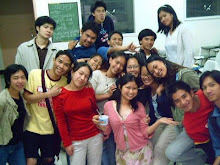
By Napoleon E. Paris
“Bakit sa Maynila ang daming tulay ngunit wala naman akong nakikitang tubig na umaagos sa ilalim? Sa bundok maraming ilog ngunit wala namang tulay na maaring maging daanan ng aming kalabaw upang ihatid ang aming mga pagkain…”- Manobo Children
These were the haunting words of the Manobo children. The Lumads of Mindanao are indeed subjected to issues concerning the lives of Indigenous Peoples throughout the country. The tribal communities in the Philippines have become one of the most inexpressive topics around our neighbors for time now.
Even in the socio-political scenario, IP issues are further isolated, or say, slowly forgotten by the modern society but considered important only when festivities and other major tourism celebrations take place.
These days, the IPs has become “endangered” like the country’s endemic flora and fauna. However, their reasons for disappearing are not only brought about by hunger but also because their way of living is threatened by the continuing affection of marginalization. As a result, they have become neglected and their situation later breeds to continuous poverty.
In view of, most of us, youth of this generation, would-be leaders in our local places, are facing many challenges as we play a critical role in the development of our tribal communities.
In dealing with the issues, we might wish to be in existence in a world like those of Bellamy’s Looking Back, B. F. Skinner’s Walden Two, Thoreau’s Walden, etc. —which are ideas of Utopia. Yes, we are too idealistic then; however, we only find ourselves struggling for breath in this smothering present situation of our poor country.
Now, the challenge for us to address are the gargantuan issues of these IPs. Or how we may be part of the solution to these IP problems?
Considering that we are natives living in the urban areas, and even in the rustic places, the primary requisite to be able to be part of the campaign in empowering the roles of IPs in the local setting and in nation building is being proud of our own ethnic group.
Like saying, “I’m proud to be an Igorot!” Isn’t it so simple to say yet difficult to prove? This is the case of some fellow IPs who are uprooted from their indigenous culture. The sense of being proud of one’s identity would be having a pioneering heart and initiative to help our brethren in need nearby.
To this cause, the idea of Balik Tribo was started. It is a program initiated by an Indigenous organization called TUKLAS Katutubo or Tuklasan at Ugnayan ng Kultura, Lahi at Sining ng mga Katutubo, which I am a part of.
Also known as the National Organization of Young Tribal Leaders of the Philippines, the organization aims to get back and rediscover one’s roots, and also bridge the gap between the tribal communities and the mainstream society.
Recently, I joined another Balik Tribo project that was successfully held in Barangay Upper Lumabat, Malungon, Sarangani Province on October 23-28, 2008.
“The place is where the Tagakaulo tribe hails. The residents there have undergone capability-building and life skills training that will help them become self-empowered and self-reliant” Edgar Tomino, one of the national organizers said.
Nevertheless, the program is designed to reach, to provide and to bring humanitarian services to different IP communities living in remote areas that will help them be equipped with skills, knowledge and proper attitude to become productive members of society.







No comments:
Post a Comment